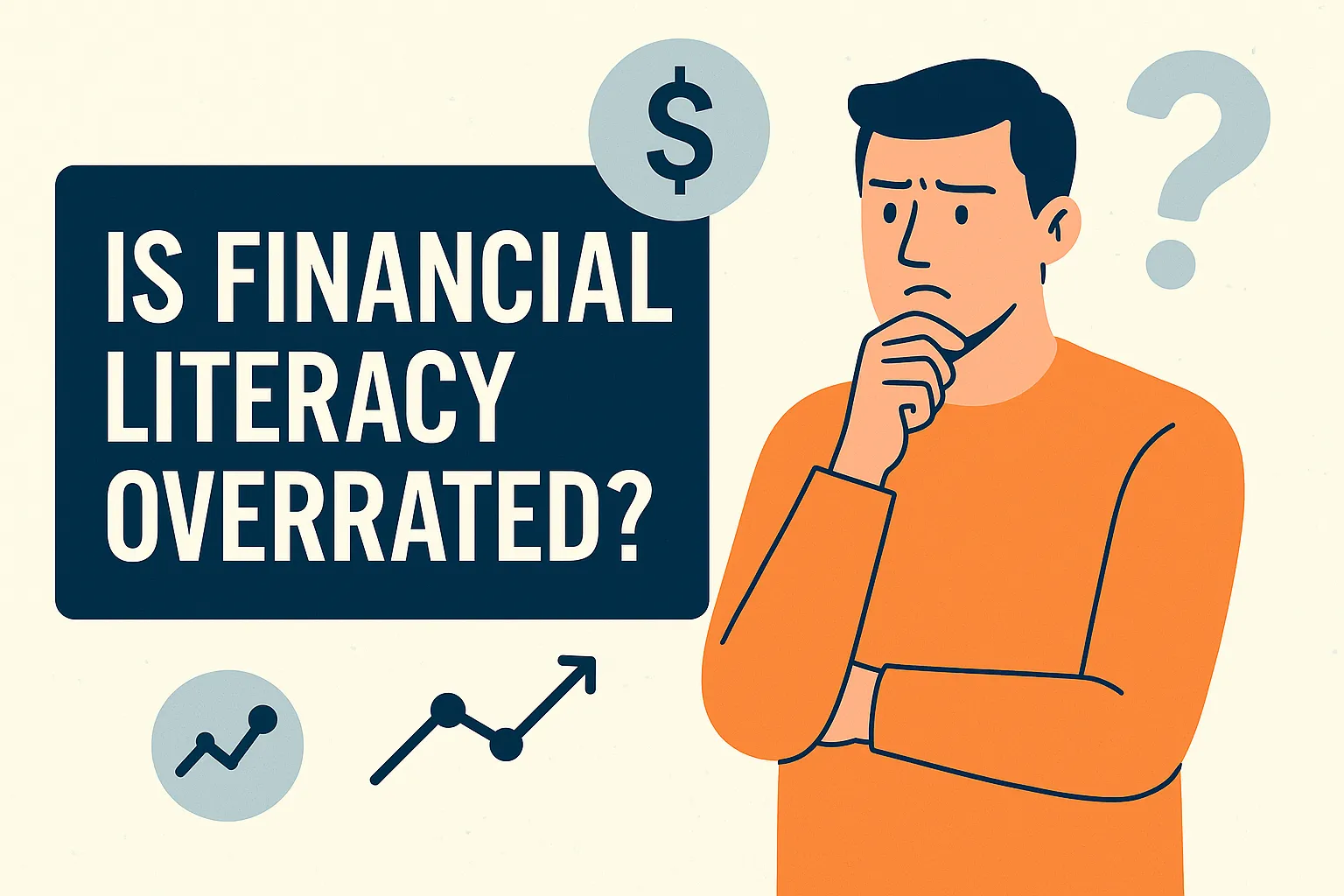Does Financial Knowledge Really Matter Most?

The Journal of Financial Literacy and Wellbeing (2023) reports that fewer than 30% of U.S. adults could correctly answer three basic financial questions. Still, those with greater financial knowledge were more likely to engage in sound practices—saving for retirement, avoiding excessive debt, and preparing for financial shocks.
But there's a catch: understanding the rules doesn’t guarantee consistent application. This article explores why knowledge, while helpful, doesn’t always change behavior—and why habits, systems, and emotional discipline might carry more weight in long-term outcomes.
Key Points
- Financial facts alone rarely drive consistent financial action.
- Positive habits and discipline can outweigh technical expertise.
- Emotional regulation and structure might often matter more than definitions.
- Overemphasizing knowledge can create overconfidence or hesitation.
- Small, consistent actions can often outperform big ideas left unexecuted.
Why Knowing Isn’t Always Doing
It makes sense to assume that those with more financial education would manage money better. But behavior tells a different story.
Hypothetical Example: One investor with a finance degree chases trends, panics during market dips, and overspends. Another with basic knowledge automates contributions, sticks to their plan, and rebalances annually. In the long run, it’s likely the second comes out ahead.
Financial literacy is useful—but it’s not the only input that matters.
Behavior Drives the Biggest Gains
A 2022 study in the Journal of Family and Economic Issues found that regular saving habits have a stronger link to financial well-being than factors like income volatility or one-time shocks. Effective behaviors can often include:
- Avoiding unnecessary lifestyle upgrades
- Staying invested during downturns
- Diversifying rather than gambling on individual stocks
- Tuning out short-term noise
Knowing what to do isn’t enough. Repeating the right actions is what builds results.
Financial Knowledge Without Context Can Mislead
Many financial literacy courses focus on the mechanics: how credit scores work, what ETFs are, or how interest compounds. But without a behavioral lens, this information can backfire:
- Overconfidence: Believing knowledge alone equals capability
- Paralysis: Delaying action until every detail is understood
- Perfectionism: Waiting for the "ideal" plan rather than starting now
Without anchoring information to behavior, education alone may not change outcomes.
Systems Over Willpower
Discipline is fragile. It can often break down under stress, fatigue, or too many decisions. That’s why systems matter:
- Automatic transfers and investments reduce reliance on memory
- Default settings help counter inertia
- Dashboards and trackers increase awareness and intention
- Aligning money decisions with values enhances follow-through
Knowledge adds insight. Systems deliver consistency.
What Actually Moves the Needle
The formula for financial health may often rely on a few consistent behaviors:
- Spend less than you earn
- Invest early and regularly
- Avoid emotional decisions
- Minimize taxes and fees
- Revisit plans periodically, not reactively
These actions don’t require advanced degrees. They require commitment.
- Common trap: Consuming financial content as a stand-in for progress. Action—even if imperfect—is what creates change.
Try this mindset shift: treat financial literacy as a toolset, not a checklist. The goal isn’t to master everything—it’s to build habits that work even when life feels chaotic.